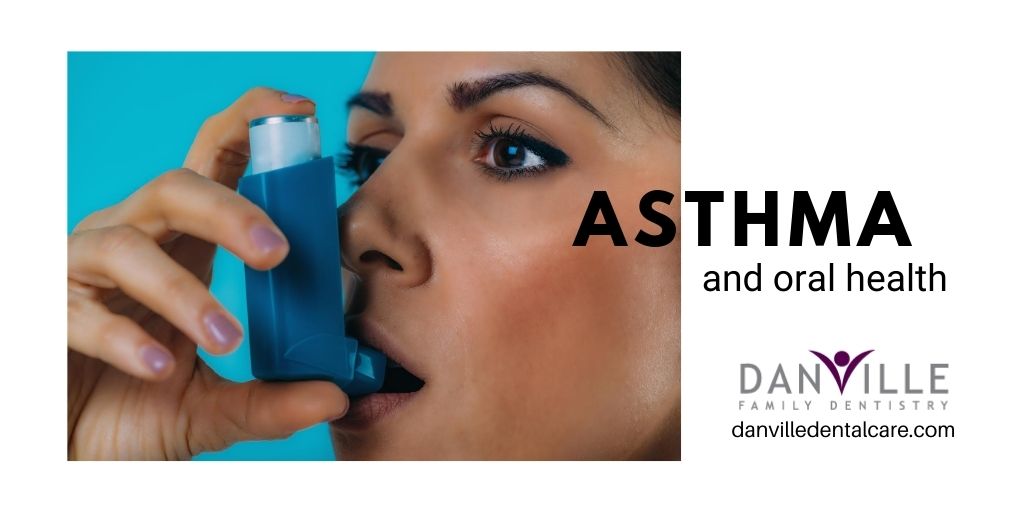Asthma and your oral health are closely related. During an asthma attack, it’s difficult to breathe because your airways narrow and swell. Some people feel a shortness of breath that’s merely a nuisance, and others have severe asthma that may become life-threatening. Either way, having trouble breathing is one way asthma can lead to gum disease.
What is Gum Disease?
Gum disease is what occurs if bacteria (plaque) builds up along your gum line and is left untreated. If your chronic dry mouth doesn’t get better and your saliva isn’t available to wash away bacteria and food debris, you’ll be headed towards the first stage of gum disease. This is called gingivitis.
Thankfully, gingivitis is reversible in its early stages with regular flossing and brushing. However, if gingivitis is left untreated, you will develop gum disease, which is where pockets of bacteria irritate your gums and harm the supporting bones and teeth. Eventually, this leads to tooth loss.
There’s good news, though. Even if you have dry mouth because of asthma, you can get ahead of any problems with some helpful tricks. Simple things like practicing good oral hygiene habits and staying hydrated ensure you won’t be prone to gum disease even if you are dealing with asthma and a chronic dry mouth.
How Asthma Can Lead to Gum Disease
You may not believe there’s a link between asthma and gum disease, but you’ll be surprised by how they’re connected. Chronic dry mouth increases your chances of gum disease, which is why it’s crucial to recognize and fix the problem quickly.
- Dry Mouth
Asthma can lead to gum disease due to excessive and chronic dry mouth. Experiencing shortness of breath typically leads a person to breathe in and out in rapid succession many times, possibly over days and weeks throughout a lifetime rapidly. The constant inhaling and exhaling lead to a decrease in the production of saliva.
Here’s why that’s a bad thing. Saliva is paramount to our oral health and overall wellbeing. It keeps your mouth healthy. It removes bacteria from your mouth before it has a chance to build up and cause cavities, tooth decay, or gum disease. That’s how asthma can lead to gum disease and other oral health problems. A dry mouth can also make eating more difficult and leave you with persistent bad breath. Plus, you may begin to notice receding gums.
- Medications
Rescue inhalers are corticosteroids that prevent asthma attacks. When you use the beta-2 agonist medication, science proves that while it will help you breathe, it will also repress salivary functioning. This unfortunate side effect can change the way your saliva moves around in your mouth, and it can also interfere with your sense of taste.
Additionally, when you take a few puffs from your inhaler, some of the medicine lingers inside your mouth, clinging to sensitive oral tissue. Due to this unwanted topical effect, salivary glands are inhibited, frequently causing dry mouth.
Of course, no one should stop using any asthma medication due to a dry mouth. There are easy ways to fix this pesky problem. Call Danville Family Dentistry today at 317-745-4400 if you’re worried about the connection between asthma and gum disease. We’re experts in putting your mind at ease and a smile on your face.
Are you on Facebook? We are, too! Let’s be friends!
Disclaimer: The information included in this article is for educational purposes only. It should not be used as a substitute for professional medical advice, diagnosis or treatment.


 (317) 745-4400
(317) 745-4400
